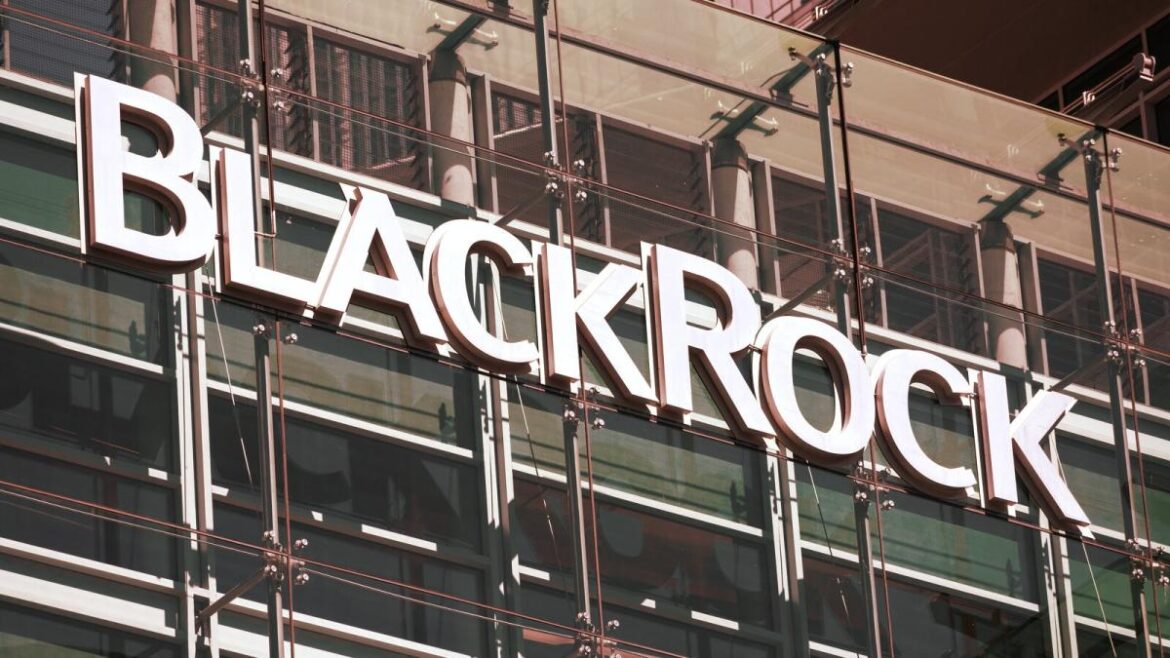BlackRock’s Bold Move In a market where institutional investment determines the trajectory of cryptocurrencies, BlackRock’s move to dramatically increase its Bitcoin holdings has caused a stir in the financial community. The massive asset management company recently revealed that it has acquired 6,470 BTC through the iShares Bitcoin Trust (IBIT), an investment trust dedicated to Bitcoin. In addition to reaffirming BlackRock’s dedication to digital assets, this audacious action is crucial in determining market sentiment and the direction of Bitcoin adoption in the future. In this piece, we’ll examine the ramifications of this noteworthy transaction, the most recent developments in institutional cryptocurrency investment, and the potential effects on investors and the market as a whole.
Comprehending the Strategic Action of BlackRock
The Bitcoin Trust of iShares (IBIT) BlackRock’s iShares Bitcoin Trust (IBIT), which was introduced to give institutional investors exposure to Bitcoin, offers a mechanism for people to navigate the erratic cryptocurrency market while taking advantage of BlackRock’s well-established reputation. BlackRock’s Bold Move Investors can immediately access the value of Bitcoin through the trust, which functions similarly to an exchange-traded fund (ETF), without having to buy and hold the cryptocurrency themselves. With the purchase of 6,470 BTC, the trust’s total assets have increased significantly, solidifying BlackRock’s position as a major force in the cryptocurrency market. BlackRock shows a significant conviction in Bitcoin’s potential for future growth and widespread adoption by amassing such a sizable chunk of the cryptocurrency.

Justification for the Purchase
BlackRock decided to boost its Bitcoin holdings for a number of reasons:
- Market Sentiment: Amidst growing institutional interest, the Bitcoin market has shown resilient, rebounding well from prior declines.
- Diversification Strategy: Institutional investors want to diversify their holdings and protect themselves from inflation. BlackRock is able to better control risks by making Bitcoin investments.
- Growing Demand: BlackRock has improved its products in this area in response to growing customer demand for exposure to digital assets and cryptocurrencies.
Effects on the Market for Cryptocurrencies
The acquisition of BlackRock will affect retail markets, institutional investors, and the general impression of digital assets, among other things.
Trust in the Institution
BlackRock’s investment in Bitcoin confirms that it is a legitimate asset class. BlackRock, one of the biggest asset management companies in the world, gives Bitcoin legitimacy and increases institutional investors’ trust. BlackRock’s Bold Move Other asset managers will probably be encouraged to take bitcoin offerings seriously as a result of the firm’s involvement.
Effect on the Price of Bitcoin
BlackRock’s larger holdings may encourage additional capital inflows into the cryptocurrency, which might push its price higher. Because it sees institutional purchases as a show of confidence in the cryptocurrency’s future worth, the market frequently responds favorably to them. If demand continues to exceed supply, the increased demand brought on by BlackRock’s acquisition may potentially result in less Bitcoin accessible on the market, which would raise prices even more. This scenario might not be an exception to historical patterns showing that large purchases by institutional players frequently support bullish price moves.

Regulatory Consequences
There will probably be more pressure for more transparent regulatory frameworks surrounding cryptocurrencies as institutional engagement grows. BlackRock’s vast regulatory background may help navigate the complicated environment and advocate for laws that protect investors while encouraging innovation. Because of the firm’s involvement, regulators may be more inclined to give more detailed instructions about Bitcoin, which might allay investor apprehensions about regulatory risks.
Trends Affecting Institutional Cryptocurrency Investment
Public opinion and usage are changing as a result of companies like MicroStrategy and Tesla incorporating Bitcoin into their balance sheets and payment platforms that facilitate bitcoin transactions. Emergence of financial products Institutional investors’ approach to digital assets is being revolutionized by the introduction of Bitcoin futures, options, and other cryptocurrency-related financial products. Without being directly exposed to the underlying asset, these products provide strategies to manage risks and profit from Bitcoin’s volatility.
Changing Attitudes of InvestorsIt’s also important to monitor how investors’ perspectives are changing. Younger investors have started to push the limits of traditional investment since they are more accustomed to technology and digital currency. As their proportion of investors increases, organizations such as BlackRock are forced to change course to satisfy their demands. Obstacles to Come Even though BlackRock’s acquisition of 6,470 BTC signals a new stage for institutional investment with Bitcoin, problems still exist.
Volatility of the market
Because of its intrinsic volatility, institutional investors may experience just as significant an impact as individual investors. Liquidity problems brought on by a large market decline may force institutions to quickly liquidate holdings in order to satisfy commitments, further blending market mood. Examining Regulations Regulators’ vigilance is changing along with the bitcoin landscape. Governments may enact stricter laws in an effort to safeguard investors and control the risks connected to digital assets. For institutional adoption to thrive, investment platforms, wallets, and custodians must constantly develop to offer safe and intuitive services.
Final Thoughts
Through the IBIT, BlackRock expanded its holdings of Bitcoin, demonstrating a major commitment to the cryptocurrency’s future. This planned step not only indicates institutional participants’ rising acceptance of Bitcoin but also prepares the ground for future changes in the market’s dynamics. Institutional investment increases scrutiny and requires regulatory predictability. BlackRock’s operations can help investors understand digital assets’ shifting tale and their impact on conventional financial markets. In conclusion, BlackRock’s decision to boost its Bitcoin holdings reflects confidence in the asset class and the prospect that Bitcoin may become a popular investment in the coming decades. Institutional interest, regulatory settings, and market dynamics will shape Bitcoin and the cryptocurrency market.



